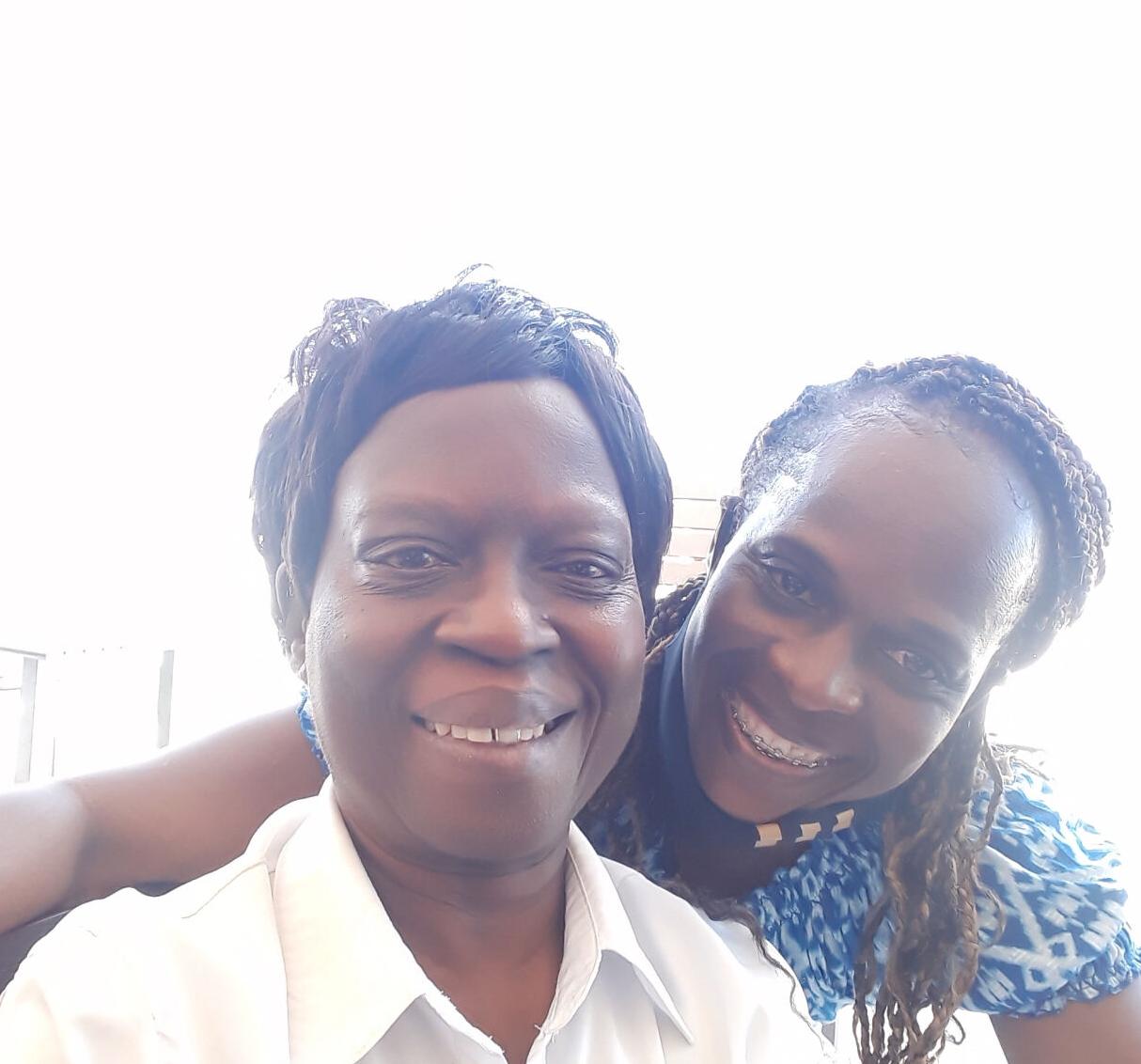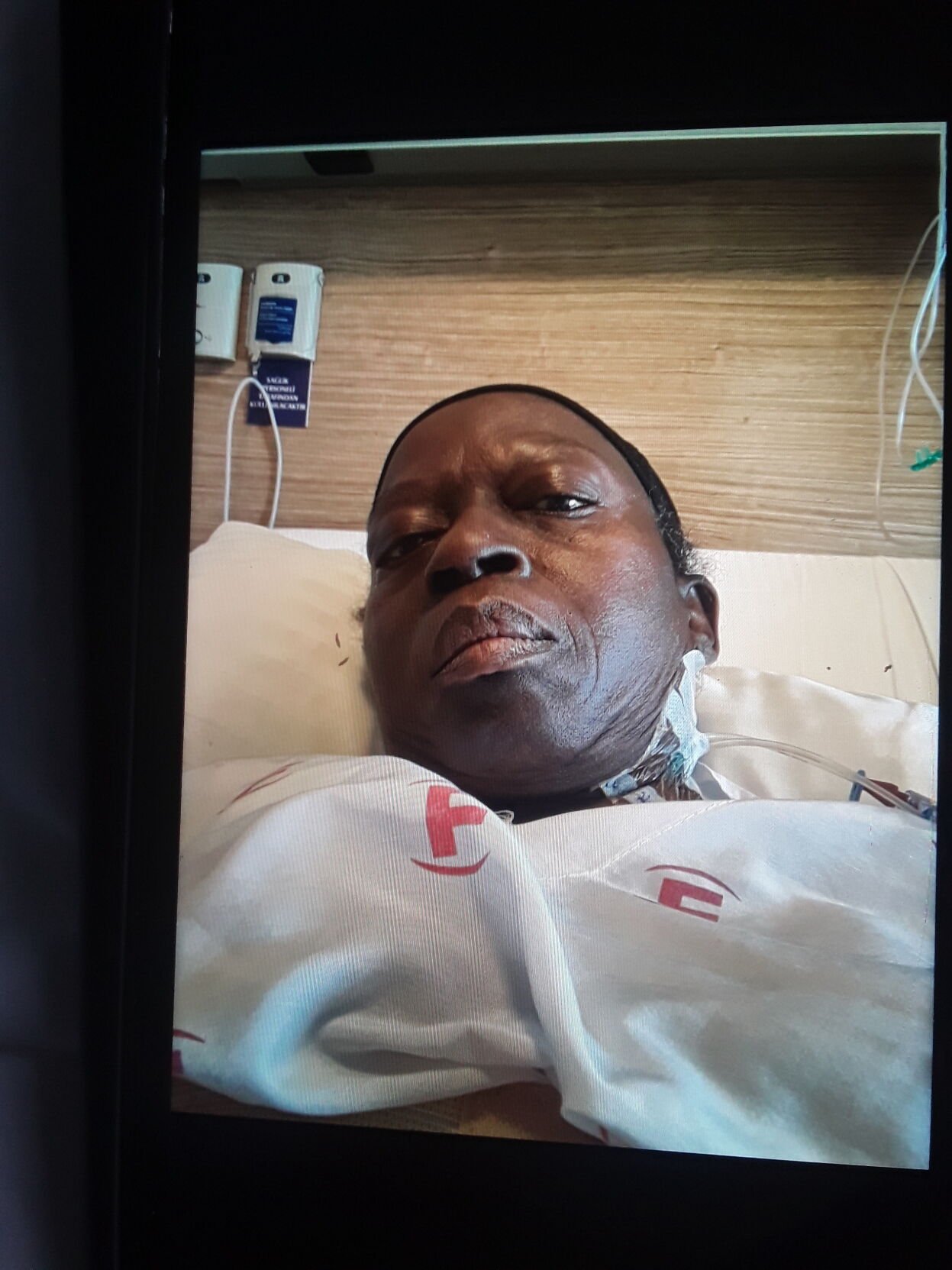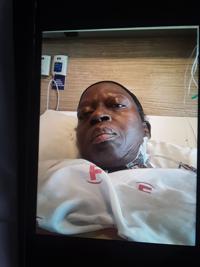Elizabeth Knowles’ baby sister, Jermeek Rolle, is her hero – literally. She donated a kidney to her sister who was in end stage renal failure and had been placed on dialysis.
Knowles, 66, underwent kidney transplant in Istanbul, Turkey, in November 2024, after eight months on dialysis.
“I can’t thank her enough,” said Knowles of the transplant surgery.
“Finding a match was a challenge. I had three people that started the investigation and she [Rolle] was not amongst them, but we found they had problems.”
Knowles said one day her sister asked her what it would take for her to give her one of her kidneys.
“She remembered me saying all I want to do is live. She said when she heard me say that, that she would do what she could.”
Knowles remembers her sister telling her that she wanted to do that for her, in spite of the naysayers who discouraged her from making the donation.
A nurse by profession, Knowles did research with her family and found a hospital in Turkey where she could have the surgery performed at a fraction of the cost of having it done in the Western Hemisphere.
She departed The Bahamas on November 17 and underwent transplant surgery on November 21. Knowles said she was entirely comfortable with her decision.
“I wasn’t concerned because we had a lot of dialogue and video calls [with the medical personnel] and googled their ratings and the transplant surgeon was a professor and director of the transplant center at that hospital.”
Knowles was discharged six days after her surgery.
Before she left The Bahamas, she said she had made up her mind that she would remain in the unique city that straddles two continents, Asia and Europe for three months, as a precaution in case of any complications.
“I did that because it’s far to go and costly to get there, so I stayed for three months.”
She did not experience any complications, so she and her daughter went country-hopping – Dubai, United Arab Emirates; Saudi Arabia; Georgia; and Athens, Greece; before she returned to The Bahamas in February. Rolle returned home after she was discharged.
Knowles had suffered with kidney disease due to a blood vessel disorder, sclerosis, for more than 20 years, before she found herself in end stage renal failure, as the disease gradually progressed.
Prior to her diagnosis, Knowles was known to check her blood pressure while at work. She said one day she noticed it was elevated, even though she did not have a history of high blood pressure. The doctor did tests to determine why it was up and found she had venous insufficiency. Her kidneys were working, but there was some damage.
In her 40s at the time, a biopsy revealed Knowles had sclerosis of the blood vessel. Her condition was managed conservatively.
It was 20 years before her kidneys failed and she was told she would need dialysis
“I wasn’t happy, but I couldn’t wait for them to start, because for the first time I started experiencing swelling in my legs and feet; nausea and vomiting — eating food and it coming up. And when you have symptoms like that, all you want is relief.”
Knowles shared her story during Kidney Awareness Month in March when emphasis was placed on raising awareness and focus on building paths to better kidney care.
She encourages people facing health challenges to cast their net wide in the search of medical relief that is also affordable.
“Don’t just live in a bubble — research, explore and hope. Have faith in God that he is in control.”
Tamika Roberts, Bahamas Kidney Association (BKA) president, leads the charge in raising awareness to the function of kidneys and preventative measures, with a vision to improving the lives of people affected by kidney disease and assist them in the transplantation process.
Roberts’ advocacy is personal.
In 2018, she donated one of her kidneys to her younger brother Antonio Roberts who was in kidney failure. She did so, knowing that she wanted to help give her brother a normal life. With both his kidneys in failure, and knowing that he needed a kidney transplant, or face the remainder of his life on dialysis, she said she could not live with her brother on dialysis, knowing that she could help.
At the time of her kidney donation, she said her younger brother had two young children to provide for, and her thoughts went to him not being here for his children.
Like Knowles’ sister, Roberts said if she could help her brother in any way for him to live, that she would do it for her niece and nephew.
Roberts also did not want him to have to live on dialysis as she saw what it did to people – “it deforms them and strips them off their dignity,” she said.
Roberts gave her brother one of her kidneys because she wanted to give him his dignity back.
The BKA president says her continued advocacy is important because kidney disease continues to be on the rise, and it is her intention to ensure that it remains in the forefront. Roberts says it’s a topic that is too big to ignore.
BKA was established with two main purposes in mind – to improve the lives of people affected by kidney disease, and to reduce the instances of kidney failure in The Bahamas through public education efforts. It’s with this in mind that the association’s mission of raising awareness, providing support, and advocating for improved kidney health in people continues year-round.
“A lot of people don’t know they have kidney disease until it’s too late,” said Roberts.
Chronic kidney disease (CKD), also called chronic kidney failure, involves a gradual loss of kidney function. Chronic kidney disease occurs when a disease or condition impairs kidney function, causing kidney damage to worsen over several months or years.
A person’s kidneys filter wastes and excess fluids from their blood, which are then removed in urine. Advanced CKD can cause dangerous levels of fluid, electrolytes and wastes to build up in the body.
In the early stages of CKD, a person might have few signs or symptoms, and not even realize they have kidney disease until the condition is advanced.
Diseases and conditions that cause CKD include type 1 or type 2 diabetes, high blood pressure, glomerulonephritis (an inflammation of the kidney’s filtering units), interstitial nephritis (an inflammation of the kidney’s tubules and surrounding structures), polycystic kidney disease or other inherited kidney diseases, prolonged obstruction of the urinary tract from conditions such as enlarged prostate, kidney stones and some cancers, vesicoureteral reflux (a condition that causes urine to back up into the kidneys), and recurrent kidney infection.
Factors that can increase a person’s risk of CKD includes diabetes, high blood pressure, heart disease, smoking, obesity, being Black, Native American or Asian American, family history of kidney disease, abnormal kidney structure, older age, frequent use of medications that can damage the kidneys.
Roberts said she frequently hears people say things like they don’t know about the relationship of high blood pressure and diabetes with kidney disease.
While Roberts said it is her hope that people never receive a KD diagnosis, once they have, she said BKA is there to assist and to also raise awareness in regard to management of their disease.
CKD can affect almost every part of the body. Potential complications include fluid retention which could lead to swelling in the arms and legs, high blood pressure, or fluid in the lungs (pulmonary edema), a sudden rise in potassium levels in the blood which could impair the heart’s function and can be life-threatening, anemia, heart disease, weak bones and an increased risk of bone fractures, decreased sex drive, erectile dysfunction or reduced fertility, damage to the central nervous system which can cause difficulty concentrating, personality changes or seizures, decreased immune response which makes a person more vulnerable to infection, pericarditis (inflammation of the saclike membrane that envelops the heart, pregnancy complications that carry risks for the mother and the developing fetus, and irreversible damage to the kidneys (end-stage KD) eventually requiring either dialysis or a kidney transplant for survival.
The BKA president encourages people to know their numbers as far as their blood pressure, sugar levels, and overall health and to not take their health for granted.
After the Roberts siblings story became public, kidney patients started reaching out to the duo, trying to find out what the siblings did and to speak to them about wanting to get a transplant, and just share their stories. In an effort to get the best information to the people that reached out to them, they tried to find a kidney association to direct the patients to. They found the Kidney Foundation of The Bahamas, headed by Dr. Ada Thompson, but it was a non-functioning organization. Roberts and her brother went on to found BKA, a non-profit organization that Roberts said is not only essential – but critical in the prevention and management of kidney disease in The Bahamas.







(0) comments
Welcome to the discussion.
Log In
Keep it Clean. Please avoid obscene, vulgar, lewd, racist or sexually-oriented language.
PLEASE TURN OFF YOUR CAPS LOCK.
Don't Threaten. Threats of harming another person will not be tolerated.
Be Truthful. Don't knowingly lie about anyone or anything.
Be Nice. No racism, sexism or any sort of -ism that is degrading to another person.
Be Proactive. Use the 'Report' link on each comment to let us know of abusive posts.
Share with Us. We'd love to hear eyewitness accounts, the history behind an article.